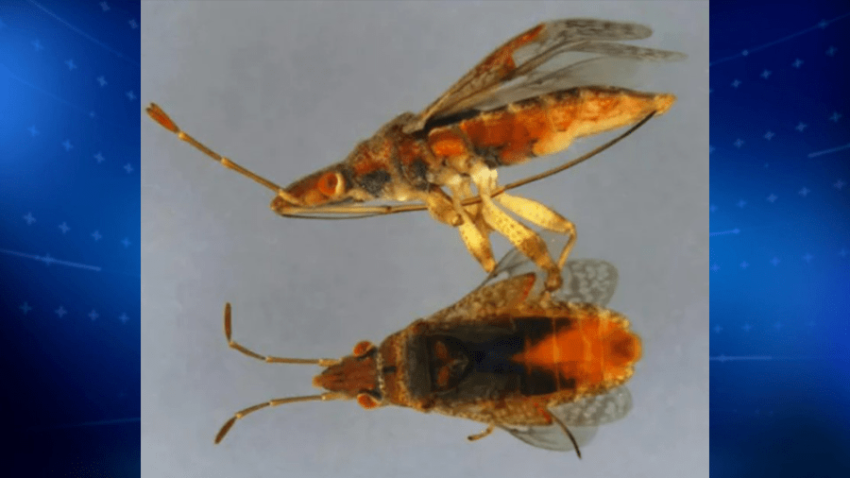GRAND RAPIDS, Mich. (WOOD) — Agriculture specialists with U.S. Customs and Border Protection confirmed that rare invasive seed bugs were intercepted on undeclared cargo late last year at Detroit Metro Airport.
Local CBP and officials with the U.S. Department of Agriculture confirmed the insects were a species known as Orsillus maculatus.
The seed bugs, which grow up to a half-inch in length, are most typically found in southern Europe and parts of the Middle East. There are no known populations within the United States. CBP has records of just two other instances where the insect was intercepted at the border: in Dallas in 1998 and in Fort Lauderdale, Florida, in 2018.
According to CBP, the bugs were found on fresh cypress cones transported by a passenger from Jordan who was heading to Ohio. Some cultures use the cones for medicinal purposes, officials explained.
“In Europe and the Mediterranean Basin, direct feeding on cypress seeds has been shown to cause significant damage to cypress plantations and stands,” the CBP said in a news release. “In addition to this, these bugs carry fungal spores on their bodies, which spread as they move about.”
The seed bugs prefer cypress trees but have also been observed feeding on conifer trees. Both are prominent across the Midwestern United States and are key to improving water quality, preventing flooding and reducing erosion. They also provide valuable timber.
The CBP says American cypress and conifer populations would have a low genetic resistance to the non-native pests.
“This was an excellent discovery by our CBP agriculture specialists,” Port Director Fadia Pastilong said in a statement. “We must be cognizant of all threats in the border environment, large and small.”
 Read: Read More
Read: Read More




